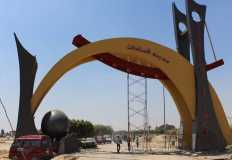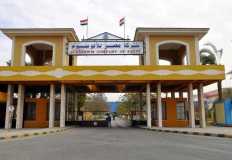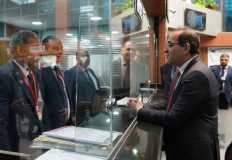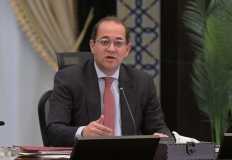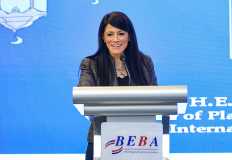Rania Al-Mashat, Minister of Planning, Economic Development and International Cooperation, participated in the celebration organized by the Indian Embassy in Cairo on the occasion of the 61st anniversary of the Indian Technical and Economic Cooperation (ITEC) programme.
Al-Mashat expressed her pride in the ITEC program's 61-year legacy, emphasizing its crucial role in fostering bilateral ties between Egypt and India and enabling the transfer of valuable technical expertise and advanced knowledge from India to Egypt and numerous developing countries.
She emphasized the significant development of the Egypt-India
partnership, spanning numerous fields and demonstrating a clear alignment of
national visions. She stressed the shared commitment of Egypt and India to
fostering economic cooperation within the Global South, recognizing integration
and collaboration as essential for achieving sustainable development and mutual
prosperity. She further explained that Egypt's dedication to strengthening
South-South and triangular cooperation stems from a firm belief that countries
with comparable economic and social conditions can drive tangible progress
through the exchange of successful experiences and best practices relevant to
their local contexts.
The Minister emphasized that human capital development is a
core focus of the strategic Egypt-India partnership. She highlighted the
Egyptian state's commitment to capacity building and knowledge exchange,
ensuring its workforce is equipped for contemporary challenges. She further
stressed the ITEC program's pivotal role in enhancing cooperation among
developing nations, citing its broad reach of 162 partner countries and its
provision of innovative technical cooperation across diverse fields.
As the national coordinator of the program in Egypt, she
detailed the Ministry of Planning and Economic Development and International Cooperation's
collaborative efforts with relevant authorities to align national priorities
with the program's objectives. She highlighted that these efforts led to a
significant increase in training opportunities for Egypt, from 40 to 200
annually, enabling over 1,500 Egyptian government officials to receive
specialized training in diverse fields including information technology, small
and medium enterprises, entrepreneurship, public administration, auditing and
accounting, rural development, parliamentary affairs, healthcare, and renewable
energy.
She conveyed Egypt's desire to expand cooperation with India, aiming to exchange best practices and leverage mutual competitive advantages in areas like artificial intelligence, programming, startup support, public health, locomotive manufacturing, poverty reduction, and climate change mitigation.
